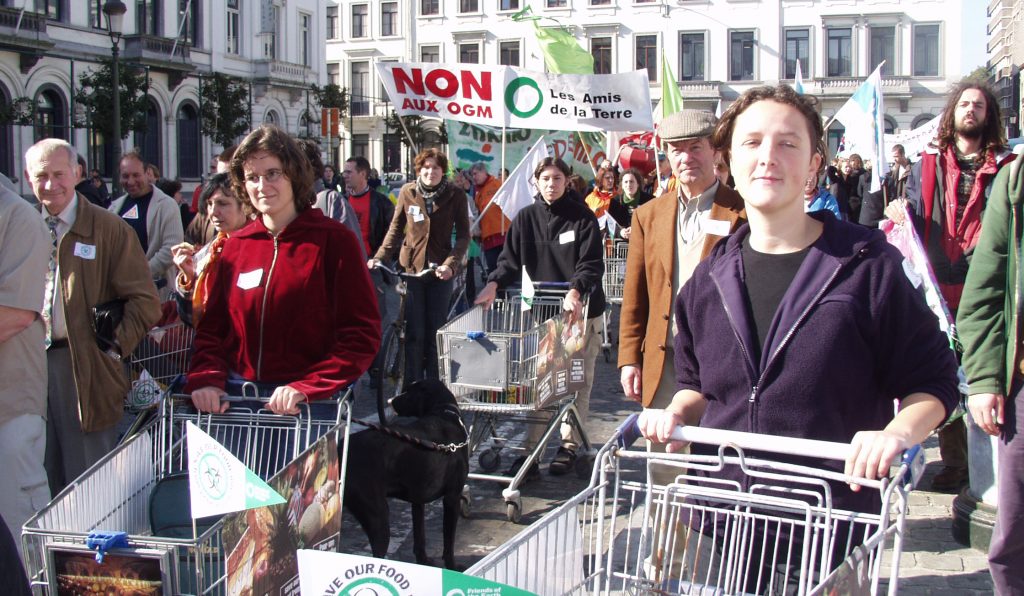Brussels, 29 March, 2007 – Environmental NGOs have welcomed today’s rejection by the European Parliament of a proposal to allow traces of genetically modified organisms in organic food [1,2]. The result of the vote, say Friends of the Earth Europe, Greenpeace, and the European Environmental Bureau, is a clear indication from European elected representatives that the right to GM-free food is non-negotiable. Parliament also voted in favour of requesting an equal say on the legislation with Member States, through the codecision procedure [3], so there will now be negotiations with the Council and Commission to resolve this conflict over legislative powers.
The NGOs warn that the 0.1 percent GMO contamination threshold should under no circumstances be used as a bargaining counter in the resolution of this conflict over legislative powers.
***
Update, 23rd May 2007: (Source: ENDs Europe Daily) the European parliament finally adopted the resolution on organic food on Tuesday when it deemed the council of ministers had sufficiently tightened up a proposed regulation on organic production and labelling. MEPs had repeatedly delayed a final vote to protest against a lack of co-decision rights over the proposal. They gave governments the green light to sign off the law only after the council accepted amendments for stricter controls and certification, clearer labelling rules and regular consultation with stakeholders.
***
NOTES:
[1] Proposal for a Council Regulation on organic production and labelling of organic products (COM(2005)0671 – C6-0032/2006 – 2005/0278(CNS)) [2] The proposed law, if adopted as such, would allow 0.9% GMO contamination in organic foods. The law only allows this contamination as long as it is “adventitious” and “technically unavoidable”, however there is evidence that the European Commission and other risk managers, under pressure to adopt a lax attitude to contamination, are, in fact, interpreting the 0.9 percent threshold to mean ‘acceptable’ contamination. The organic sector currently works to a lower threshold (detection level), which EU laws must support, to enable organic farmers and retailers to maintain existing standards. [3] The codecision procedure gives the European Parliament the power to adopt legislation jointly with the Council of the European Union, requiring the two bodies to agree on an identical text before any proposal can become law.







